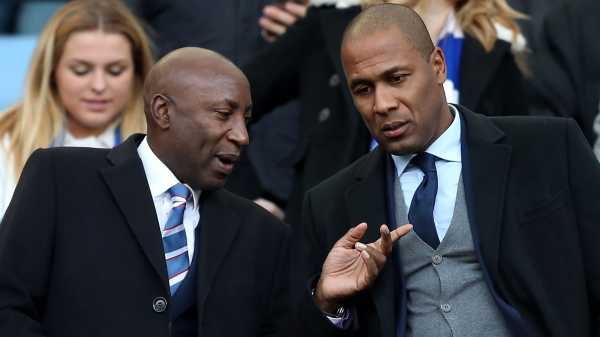
The Black Footballers Partnership has accused English football of refusing to address the under-representation of black coaches in the game, saying the FA’s Football Leadership Diversity Code has failed.
The FLDC was introduced in 2020, but three years later, the BFP has commissioned its own report which suggests targets have been repeatedly missed for black former players to progress into football coaching and management.
The BFP study was timed to coincide with the 75th anniversary of HMT Windrush arriving in the UK, with workers from the West Indies coming to help re-build infrastructure destroyed by the Second World War.
And the new report says the efforts to get more black players into senior positions in football have been “too few, too little, too late”.
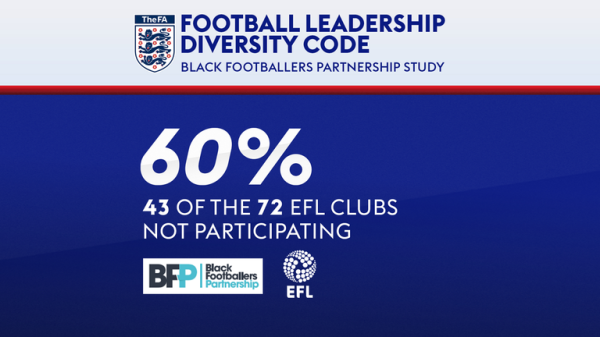
The FA’s Football Leadership Diversity Code sets targets for all football clubs, whereby 25 per cent of all new coaching hires and 10 per cent of senior coaching hires are from black, Asian or mixed heritage backgrounds.
Trending
- Transfer Centre LIVE! Kane, Rice, Maddison latest
- Arsenal submit record-breaking £105m Rice offer
- Papers: Man Utd’s summer budget revealed at £100m
- Maddison to have Spurs medical | £40m deal agreed
- Horner: It would be ‘dishonest’ to be best mates with Wolff
- Arsenal transfers: ‘Gunners may need £110m to sign Rice’
- FA ‘refusing to address lack of black coaches’
- Arsenal in advanced talks to sign Timber | Havertz announcement close
- Premier League transfers: Club by club
- Liverpool transfers: ‘Leeds interested in defender Phillips’
- Video
- Latest News
The new report shows only 10 of the 92 professional clubs in England are meeting that criteria.
Black players account for 43 per cent of all those playing in the Premier League and 34 per cent of all EFL players. Yet, across the board in England, the report says less than five per cent of professional football coaches in the top four divisions are black.
Also See:
Sports economist Stefan Szymanski from the University of Michigan carried out the study on behalf of the BFP. The key findings of his report show:
- Only 29 out of the 72 EFL clubs have signed up to the FA’s Leadership Diversity Code – that means 60 per cent have failed to do so.
- While all 20 Premier League clubs have signed up, the BFP calls their progress “patchy and deeply disappointing”.
- Only 10 clubs of the 92 in England are meeting the targets set out by the FA. Those are: Arsenal, Manchester United, Brentford, Burnley, Burton Albion, Doncaster Rovers, Fleetwood Town, Ipswich Town, QPR and Stoke City.
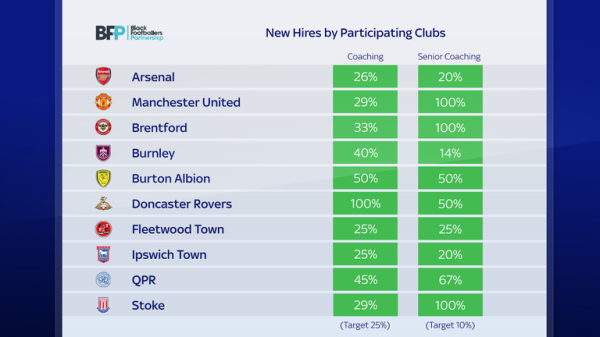
Chris Ramsey, a black former Premier League manager, has told Sky Sports News: “All black footballers want is to be treated fairly like our friends and colleagues from other groups.
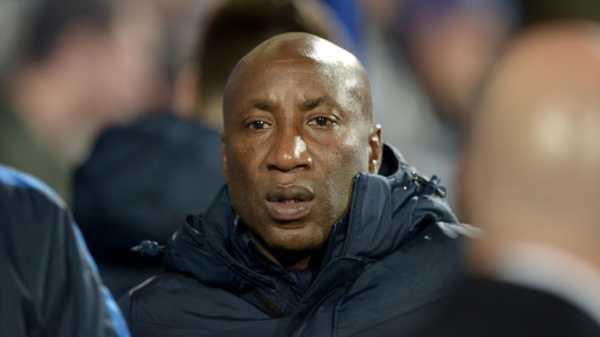
Image: Ramsey believes there is a systemic issue in the game
“The numbers tell us that black representation is significantly lower than our white counterparts even when we are qualified to do the roles and jobs that go to ex-footballers. We look forward to constructive engagement with the game to focus their plans to deliver real change.”
Delroy Corinaldi, executive director of BFP, said: “The numbers tell their own sad story at a time of celebrating 75 years of the Windrush generation.
“While the intentions of the clubs may be to do the right thing, they are collectively failing to deliver genuine, ground- breaking meaningful opportunities for diversity, and this is one of football’s biggest challenges.
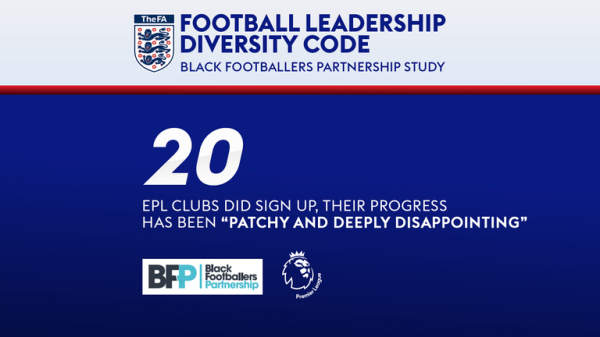
“BFP looks forward to holding constructive and strategic conversations with the FA to deliver a future in football that is truly merit-based and fair for all and to work with those committed clubs requiring support.”
In response to the claim that the FA’s Leadership and Diversity Code has failed, Paul Elliott, founder of The FA’s Football Leadership Diversity Code, said: “The Football Leadership Diversity Code is a ground-breaking initiative, introduced to create greater accountability amongst its signatories in tackling underrepresentation in football.
“Launched less than three years ago, it is premature and unfair to suggest it has failed. Substantive change takes time and we have already seen tangible progress with the governing bodies and a number of clubs.
“Long-term structural changes in football will not happen overnight, and it’s vital that people around the game get behind the code and support it. Through a united and collaborative approach across clubs, leagues, governing bodies and all of our stakeholders, the code and other positive initiatives will help us to deliver meaningful change.”
An EFL spokesperson said: “The FA’s Football Leadership Diversity Code (FLDC) is one component of the EFL’s effort to improve representation. While there is still plenty of work to do, EFL clubs participating in the FLDC hit six of eight targets as a collective.
“For clubs outside of the FLDC, a number of other schemes are in place to help improve diversity including the EFL’s code of practice which was revamped this year, a mandatory minority coaches recruitment code which has seen minority candidates appointed for 23 per cent of academy coaching roles, while a new anonymised I-Recruit platform has been rolled out to combat any unconscious bias in club recruitment.”
The Premier League said: “The Premier League is committed to tackling discrimination and increasing diversity within football. Since launching in March 2019, No Room For Racism has brought together the League’s work against racial discrimination and the Action Plan, launched in 2021, is embedded across all Premier League activity.
“In February this year, the League announced a two-year update on its No Room For Racism Action Plan, which shows that progress has been made against all six pillars, with targets set to ensure this momentum continues. While it is important to note the areas of improvement, we recognise that there is still a lot of work to do in this area.”
Sourse: skysports.com






